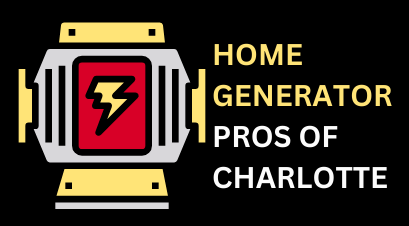
Whole House Generators in Barclay Downs NC
A whole house generator is a backup power system designed to supply electricity to your entire home during a power outage. Unlike portable generators that only power select appliances, a whole house generator connects directly to your home’s electrical system, ensuring all essential circuits and appliances remain functional. It automatically activates when the main power supply fails, providing seamless, uninterrupted power to your home.
Why Having a Generator Is Essential for Homes
Power outages can happen unexpectedly and last for hours, days, or even weeks. Having a
whole house generator in Barclay Downs, NC, ensures that your home remains powered, no matter the situation. It keeps your lights on, appliances running, and essential systems like heating, cooling, and security functional. This not only provides comfort but also protects your home from potential damage, such as frozen pipes in the winter or food spoilage during extended outages. Additionally, a whole house generator adds value to your property and offers peace of mind, knowing that you and your family are protected during emergencies.
Examples of Situations Where It Is Crucial
Whole house generators are invaluable during severe weather events like hurricanes, storms, and blizzards, which can knock out power for days. In these scenarios, a generator ensures that you have continuous access to electricity for heating, cooling, lighting, and communication. It’s also essential for homes with medical equipment that requires a steady power supply, such as oxygen machines or refrigerated medications. Additionally, if you work from home, a whole house generator can keep your internet and office equipment running, allowing you to maintain productivity even during a power outage.

We will get back to you as soon as possible.
Please try again later.
Factors to Consider When Choosing a Whole House Generator
Choosing the right whole house generator involves several key considerations:
- Power Output: Determine the total wattage your home requires to ensure the generator can handle all your essential appliances and systems.
- Fuel Type: Common options include natural gas, propane, and diesel. Your choice will depend on availability, cost, and personal preference.
- Size and Capacity: The size of the generator should match your home’s power needs. Larger homes may require a more powerful generator to cover all circuits.
- Transfer Switch: A transfer switch is necessary for safely switching between the main power supply and the generator. Ensure it’s compatible with your home’s electrical system.
- Noise Level: Consider the noise output of the generator, especially if your home is in a residential area with noise restrictions.
How It Works
A whole house generator operates by detecting a power outage and automatically starting up to supply power to your home. It’s typically connected to your home’s electrical panel through an automatic transfer switch. When the generator senses a power failure, the transfer switch disconnects your home from the main grid and connects it to the generator’s power supply. The generator then runs until the main power is restored, at which point it shuts off and the transfer switch reconnects your home to the grid.
Different Types
There are several types of whole house generators to choose from:
- Standby Generators: These are permanently installed outside your home and are designed to automatically kick in during a power outage. They are available in various sizes and power capacities to suit different homes.
- Portable Generators: While not typically used for whole-house coverage, some high-capacity portable generators can be connected to a transfer switch to provide power to essential circuits.
- Inverter Generators: These are more efficient and quieter than traditional generators, making them ideal for homes where noise is a concern. However, they may not provide enough power for larger homes.
Installation Process
Installing a whole house generator involves several steps:
- Site Assessment: A professional will assess your home to determine the best location for the generator and ensure it meets all local codes and regulations.
- Permitting: Depending on your location, you may need permits before installation can begin.
- Electrical and Gas Connections: The generator will be connected to your home’s electrical panel and, if applicable, to a natural gas or propane line.
- Transfer Switch Installation: The transfer switch will be installed to manage the transition between the main power supply and the generator.
- Testing: Once installed, the generator will be tested to ensure it functions correctly and automatically during a power outage.
Maintenance and Care
Proper maintenance is essential to keep your whole house generator in top working condition. Regular maintenance tasks include:
- Oil and Filter Changes: Just like a car engine, the generator’s engine requires regular oil and filter changes to ensure smooth operation.
- Battery Checks: The generator’s battery should be checked regularly to ensure it’s fully charged and ready to start the generator during an outage.
- Fuel System Maintenance: For generators that run on propane or natural gas, the fuel system should be inspected for leaks and proper function.
- Cooling System Inspection: The cooling system should be checked to prevent overheating during extended use.
- Test Runs: Regularly test your generator by simulating a power outage to ensure it’s ready to go when needed.
Warranty and Support
When purchasing a whole house generator, consider the warranty and support services offered. A comprehensive warranty provides coverage for parts and labor, ensuring that you’re protected if something goes wrong. Additionally, look for a company that offers reliable customer support and has a network of certified technicians available for maintenance and repairs.
What We Offer
At our company, we provide top-of-the-line whole house generators tailored to meet the specific needs of homes in Barclay Downs, NC. We offer a wide range of models from leading manufacturers, ensuring that you get the best possible generator for your home. Our experienced technicians handle everything from site assessment and installation to ongoing maintenance and support. We’re committed to delivering reliable power solutions that keep your home safe and comfortable, no matter what.
- Residential Generators
- Commercial Generators
- Portable Generators
- Electric Generators
- Propane Generators
- Solar Generators
- Generator Repairs
- Generator Maintenance
- Generator Parts
If you’re ready to secure your home with a whole house generator, don’t hesitate to contact us. Our team is here to answer any questions you may have and guide you through the process of choosing the right generator for your home. Reach out to us today to schedule a consultation and take the first step towards uninterrupted power.
Let's Connect!
Don't get caught in the dark during the next power outage. We offer top-notch generator installation services to keep your home or business running smoothly no matter what. Our team specializes in emergency backup generators, ensuring that your power stays on even in the most severe weather conditions. Worried about the cost? We understand that buying a standby generator is a significant investment, which is why we offer fair and competitive pricing. Let us help you protect your home or business by hiring us for your generator installation needs.